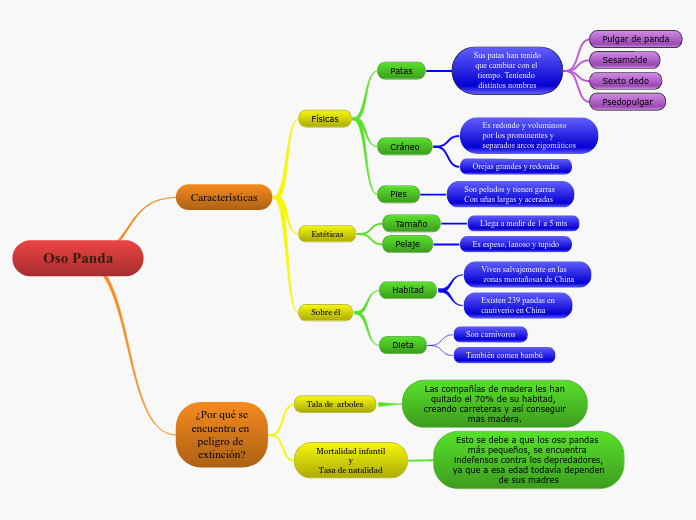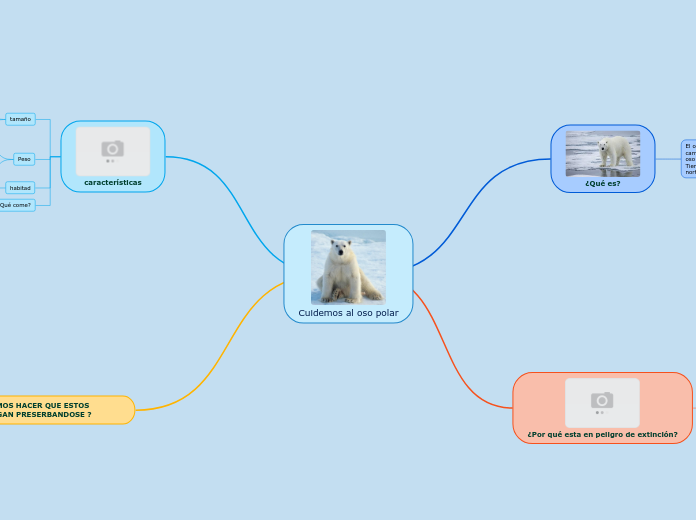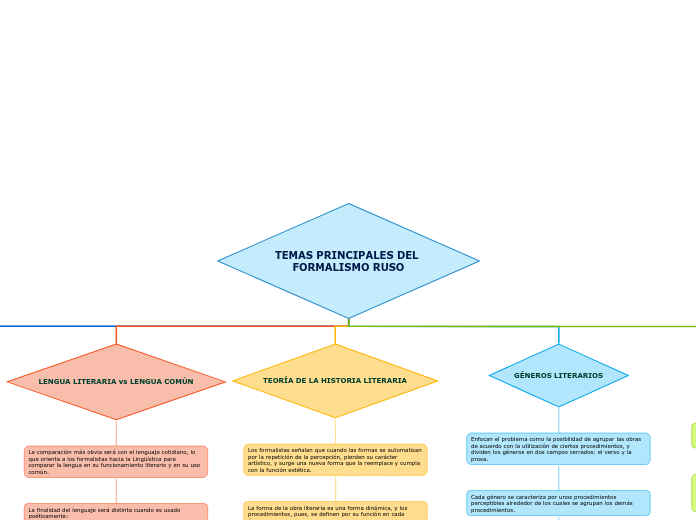Oso Panda
To name your story, you have to think about the overall message and what you want your audience to understand from the story. Also, make it relevant and easy to remember.
¿Por qué se
encuentra en
peligro de
extinción?
The ending of a story is essential. We all know that if the ending is weak, what happened before loses its importance. So make it unpredictable, but fair. A resolved ending answers all the questions and ties up any loose threads from the plot.
Mortalidad infantil
y
Tasa de natalidad
Esto se debe a que los oso pandas
más pequeños, se encuentra
indefensos contra los depredadores,
ya que a esa edad todavía dependen
de sus madres
Tala de arboles
This is the moment when the main character surpasses the last obstacle and finally faces their greatest challenge.
The climax usually follows one of these patterns:
- realization
- resolution
- choice
Type in your answer.
Las compañías de madera les han
quitado el 70% de su habitad,
creando carreteras y así conseguir
mas madera.
Características
In the beginning of the story (or the exposition), you will need to introduce the setting and characters. You might also want to introduce the main conflict. This part of the story is important because it gives the reader necessary background information and maybe even a first insight into a character’s personality.
Sobre él
Dieta
También comen bambú
Son carnívoros
Habitad
Existen 239 pandas en
cautiverio en China
Viven salvajemente en las
zonas montañosas de China
Estéticas
The setting (time & place) of a story can change throughout the plot.
Pelaje
Sensory details include sight, sound, touch, smell, and taste. These details are important because they create depth in your setting.
See a few examples below:
- the smell of fresh bread
- the scent of freshly cut grass
- rain falling onto the windshield etc.
Es espeso, lanoso y tupido
Tamaño
Your story can take place wherever your imagination will take you to.
For example: in an elevator, in an enchanted forest, etc. Don't forget to give details of the environment each time the setting changes, otherwise, the story can be confusing. Also, mention the seasons as each of them has unique weather and events.
Llega a medir de 1 a 5 mts
Físicas
Pies
Son peludos y tienen garras
Con uñas largas y aceradas
Cráneo
Orejas grandes y redondas
Es redondo y voluminoso
por los prominentes y
separados arcos zigomáticos
Patas
Sus patas han tenido
que cambiar con el
tiempo. Teniendo
distintos nombres
Psedopulgar
Sexto dedo
Sesamolde
Pulgar de panda










